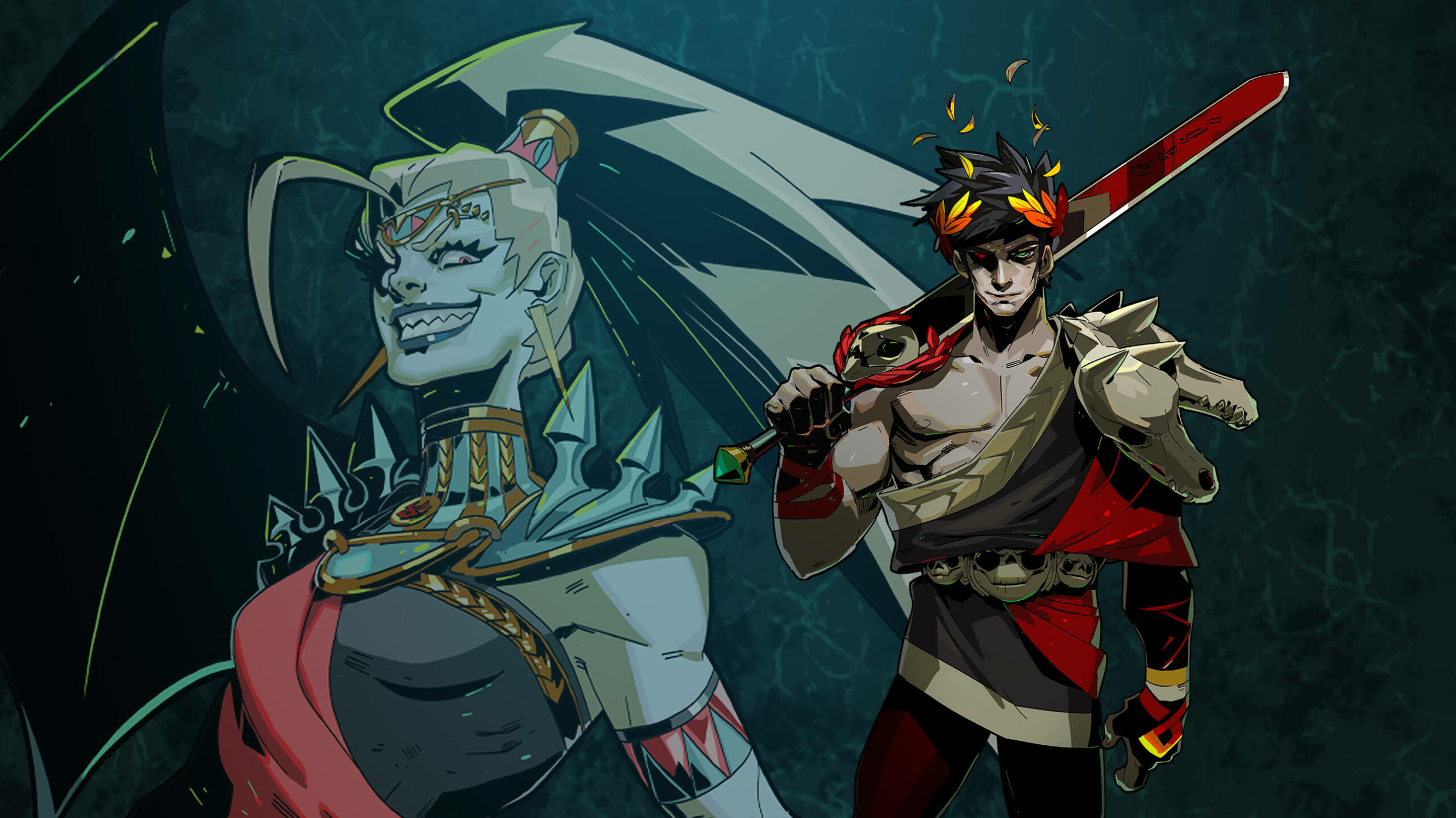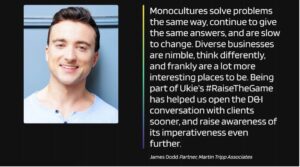The games industry: doing diversity & inclusion right

We wrote last year about the challenges the +$138 billion games industry has had in establishing its diversity and inclusion credentials…
…but watching the BAFTA Games Awards recently, I wonder if there is a lot more to celebrate than we previously noted.
The increasing evidence is that large parts of the games industry and its players are some of the most inclusive and accepting communities out there. Certainly there is already a lot that other businesses could learn from the industry. Presented by journalist and BAFTA Games Committee member, Elle Osili-Wood, the BAFTA Games Awards 2021 felt not only like a celebration of video games as an art form and entertainment, but also of the diversity within both the industry and in the world around us.
The winners
This year’s big winner was Supergiant Games’ Hades, starring bisexual lead Zagreus in a tale of Greek gods and mythology as he battles to escape the underworld. The game received eight nominations and won five, including the coveted Best Game award.
Naughty Dog & Sony Interactive Entertainment’s The Last of Us Part II became the most nominated BAFTA game ever, receiving 13 nominations and winning the EE Game of the Year award as voted for by players. It stars an LGBTQ+ female character, Ellie, in the lead role. In a recent interview with PinkNews, Elle Osili-Wood explained why she thought that Ellie resonates with audiences when, in less adept hands, she so easily could have been viewed as tokenism: “It’s a fleshed out portrayal of a woman who has many aspects, many facets of her personality and who she is….. It is actually that she is a human in this game. [Being lesbian] is fundamental to who she is, but it’s not fundamental to who she is in the game. And that for me is the most exciting thing.”
Elsewhere, Insomniac Games’ follow-up to the hugely successful Marvel’s Spider-Man, Marvel’s Spider-Man: Miles Morales, also won an award. Featuring a black teenager in the lead role of Spider-Man, the game also features a wealth of diverse characters throughout its world.
Tell Me Why, by Dontnod Entertainment & Xbox Studios, features a trans narrative and was nominated for Game Beyond Entertainment. It lost out to Nintendo’s Animal Crossing: New Horizons, a game which in itself has attracted an exceptionally diverse community who play and create together online.
Alongside games, people were celebrated. Notably Siobhan Reddy, renowned throughout the industry for her ethical, fair and inclusive approach to leadership, was honoured with a BAFTA Fellowship, for her work as Studio Director of Media Molecule.
2021 also saw the first ever LGBTQ games awards show, The Gayming Awards. Sponsored by EA Games and broadcast exclusively on Twitch, the awards were designed “to celebrate diversity and inclusion throughout gaming – whether through the authentic representation of a video game character, or the incredible people that brought these LGBTQ+ games to life.” The awards saw a rich variety of nominations, and support from some of the biggest names in the industry, including Sony and Microsoft. Perhaps unsurprisingly, Hades was also the big winner this year. Robin Gray, founder of Gayming Magazine, Industry Gayming, and the awards themselves told us “it was my absolute honour to be able to bring these awards to life and celebrate queer video game excellence. It was tough to have to do them under COVID restrictions; however, I am immensely proud in what we delivered and can’t wait for 2022 Awards when we’ll be back out in a packed theatre!”
In April 2021, the annual GLAAD Media Awards celebrated their 32nd ceremony. The awards recognise and honour numerous forms of media for their fair, accurate and inclusive representations of the lesbian, gay, bisexual, transgender and queer (LGBTQ) community and the issues that affect their lives. This year’s award for Outstanding Video Game recognised ten games and their respective studios. This time, Tell Me Why did get the recognition it deserves, winning the award in a tie, alongside The Last of Us Part II.
Beyond the awards
With so many industries repeatedly failing when it comes to diversity and inclusion, one has to ask: what is so different about the games industry? One reason could be the consistent work the industry is doing from the inside.
Ukie has just seen in the one-year anniversary of its Raise The Game Diversity Pledge. #RaiseTheGame “is a collaborative and high-impact pledge to improve equality, diversity and inclusion in the games industry – creating cultures where everyone belongs, voices are heard and ideas can thrive.” As part of the pledge ourselves, it’s fair to say Ukie really does hold its pledge partners accountable to their diversity pledges.

Ukie also has an Equality, Diversity and Inclusion group, which meets every few months, bringing experts from the games industry together to discuss issues, share best practices and experience, and further drive the cause.
OutMakingGames pledge “to connect and empower the LGBTQ+ community working in the games industry across the UK… to address and overcome the barriers that exist for LGBTQ+ professionals in the industry, both by transforming policies and institutions, and by changing hearts and minds through education.” I look after Jobs and Networking channels in the group’s Slack, and run networking events each month where people at all levels of the industry can connect, discuss and educate in a safe, friendly environment.
Bafta Games also piloted the BFI Diversity Standards, [full details of which can be found here] for entrants into this year’s games awards, as a way to ensure minority groups aren’t overlooked. The BFI’s CEO, Ben Roberts, added that the standards could also serve as “a framework” for more inclusive standards in the games industry as a whole.
Furthermore, we can look at the make-up of the industry itself. The 2020 Ukie census reported that “21% of people working in the games industry are LGBTQ+ and 79% heterosexual. This is a significantly high proportion of LGBTQ+ workers, with other data sources indicating that heterosexual people make up between 93-97% of the national population. At 2%, non-binary representation in the UK games industry workforce is higher than the national average, which is estimated at 0.4%.” Dr Jo Twist, CEO of Ukie, said: “By conducting this census, we now have a benchmark that can lay the foundations for the creation of a truly diverse and inclusive sector for the future.” Great news indeed.
Unfortunately, it’s not all positive. Much has been written about toxic players trolling developers, performers and each other. Only last year, actress Laura Bailey who plays Abby in the aforementioned The Last of Us Part 2, received a torrent of online abuse and death threats, after players learned her character’s story arc in the game. Following our report last year, there have been further reports of studios mistreating their staff this year. Once again, in her interview Elle Osili-Wood perfectly captured the view of so many of us, saying “I’d love to see studios banning incredibly toxic players. I’d love to see studios’ social media really genuinely speaking out, not vague statements on a nice black background or a rainbow flag, but in fact unequivocally coming out in support of their employees.”
There are also significant imbalances in the industry workforce, in terms of gender and ethnicity. Ukie’s census reported that 70% of people working in the games industry are male, compared to 28% female and 2% non-binary workers. Female representation in the workforce is significantly under the national average of those in work, as well as less than in cultural and creative roles more generally, but is similar to the proportion of women working in Film/TV, and above that of the general IT/software sector. It also found that 10% of people working in games are Black, Asian or minority ethnic. This is a slightly higher percentage than in the national working population, and higher than both the overall creative industries and specific sectors such as music, publishing and film/TV. However, it is lower than the equivalent figure for IT and software, as well as below the average in the working-age population.
There is always more we can do to ensure that whatever your background, colour, preference, or identifier, you are acknowledged, you are seen, and you are represented. Whilst it’s not all good news, the above are just a tiny handful of examples of what the games industry, its suppliers and supporters are doing to ensure that diversity and inclusion is more than just a phase, and is in fact celebrated, and built into the industry’s backbone.
We must never get complacent and always strive to do better. But one thing is for sure: whether you create games, market games, sell games, write about games, perform in games, supply the industry as we do, or simply play games, it’s already a diverse, inclusive place to be in in so many ways – and it’s just getting started.
James Dodd
Martin Tripp Associates is a London-based executive search consultancy. While we are best-known for our work across the media, information, technology, communications and entertainment sectors including video game recruitment, we have also worked with some of the world’s biggest brands on challenging senior positions. Feel free to contact us to discuss any of the issues raised in this blog.